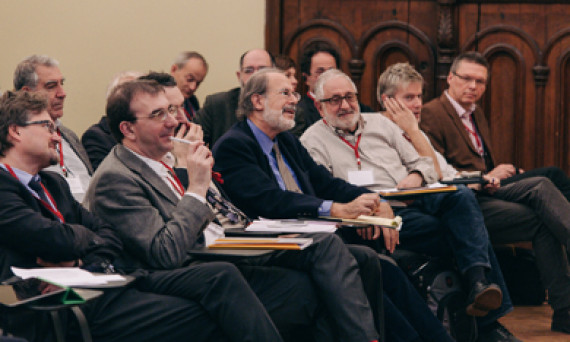On December 5-6, 2014, the European University at St. Petersburg hosted the second Conference on the Scientific Diaspora, titled “Points of Growth for the Russian Sciences”. Four years have already gone since the first conference was held. In 2010, we discussed which conditions should be created in Russia to stimulate and facilitate the development of the sciences and effective collaboration between Russian-speaking scholars living in different countries all over the world.
This year, we were confronted with new challenges. The international context has changed significantly. Russia’s growing isolation again may bring about the problem of brain drain, negatively impacting the development of scientific contacts and preventing the further integration of Russian science into global academia. Only strong academic ties will allow us to avoid many of the negative effects of this isolation and preserve contacts and dialogue in these complex times. Much has changed within Russia as well. At the time of the first Acadmic Diaspora conference, we discussed the preliminary outlines of mega-grant projects—now we can evaluate their first results. New mechanisms have also appeared that support contact with diaspra, such as the “5/100/2020” program aime at increasing the competitiveness of Russian universities, and the Russian Scientific Foundation.
Mass Media on the Conference
Putin's Russia divides scientists
Video recordings in Russian are now available on our youtube channel












































